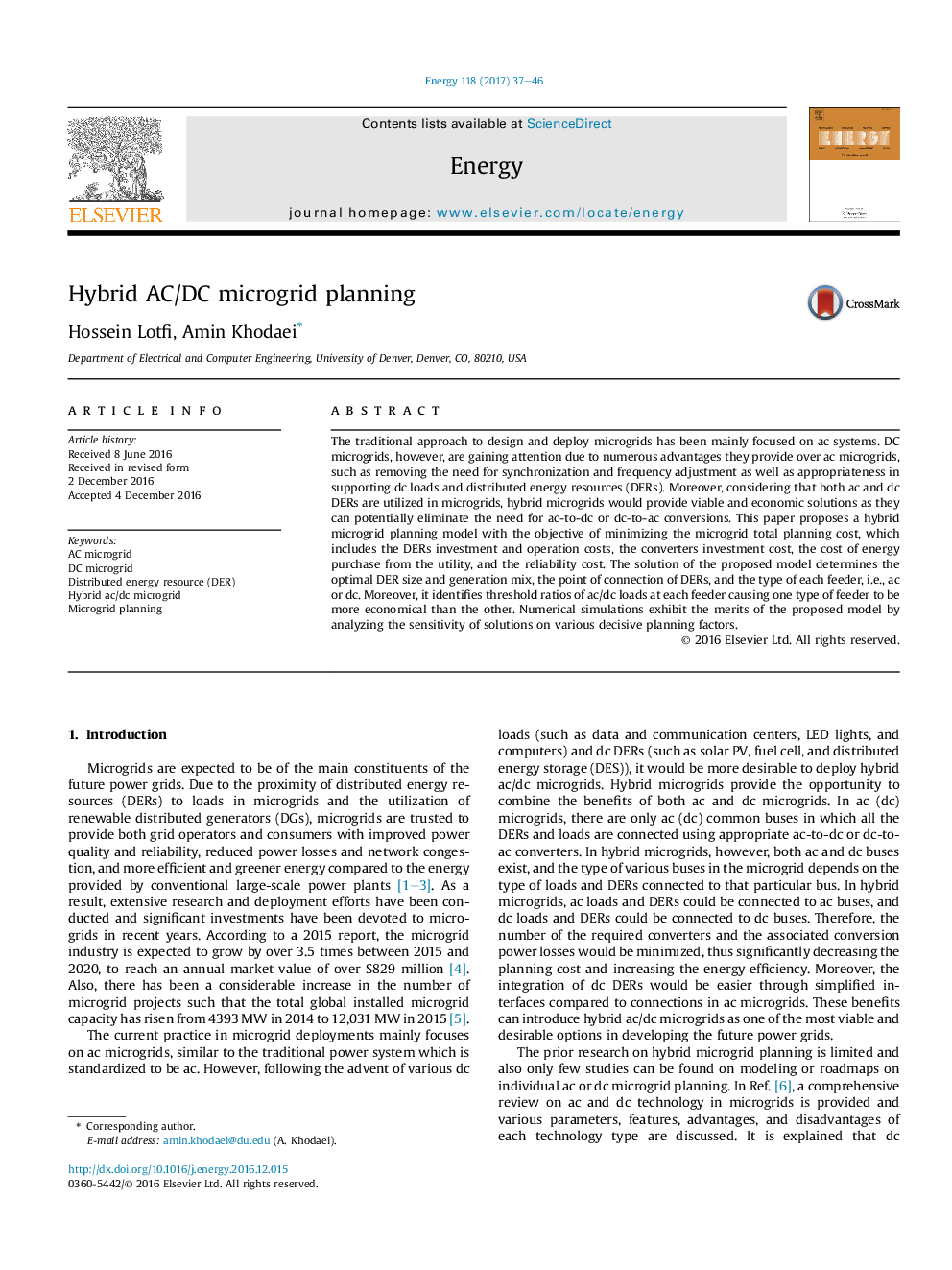| Article ID | Journal | Published Year | Pages | File Type |
|---|---|---|---|---|
| 5477038 | Energy | 2017 | 10 Pages |
Abstract
The traditional approach to design and deploy microgrids has been mainly focused on ac systems. DC microgrids, however, are gaining attention due to numerous advantages they provide over ac microgrids, such as removing the need for synchronization and frequency adjustment as well as appropriateness in supporting dc loads and distributed energy resources (DERs). Moreover, considering that both ac and dc DERs are utilized in microgrids, hybrid microgrids would provide viable and economic solutions as they can potentially eliminate the need for ac-to-dc or dc-to-ac conversions. This paper proposes a hybrid microgrid planning model with the objective of minimizing the microgrid total planning cost, which includes the DERs investment and operation costs, the converters investment cost, the cost of energy purchase from the utility, and the reliability cost. The solution of the proposed model determines the optimal DER size and generation mix, the point of connection of DERs, and the type of each feeder, i.e., ac or dc. Moreover, it identifies threshold ratios of ac/dc loads at each feeder causing one type of feeder to be more economical than the other. Numerical simulations exhibit the merits of the proposed model by analyzing the sensitivity of solutions on various decisive planning factors.
Keywords
Related Topics
Physical Sciences and Engineering
Energy
Energy (General)
Authors
Hossein Lotfi, Amin Khodaei,
